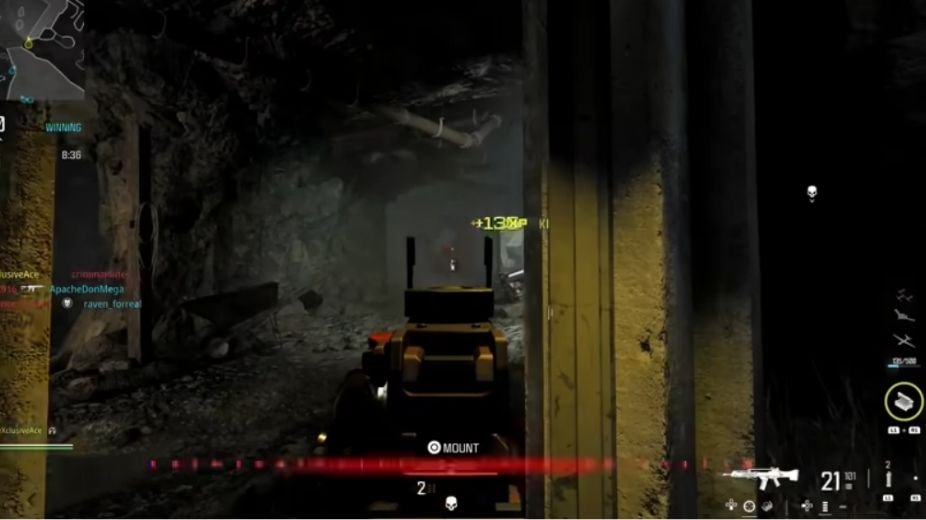

28/07/2025
Administrator
Skill-based matchmaking (SBMM) in Call of Duty has been a subject of hot debate among gamers worldwide. It assigns competitors based on ability not related connection. But what is SBMM actually, why do players disagree over it, and why do game developers keep implementing it?
Players are matched according to their levels in the game, and this is made possible by the use of SBMM. This means that newcomers will be competing with other newcomers while experienced players will be competing with other experienced players. Some have criticized that it reduces game flexibility and hampers extraordinary gamers from showing the best that they can offer.
However, SBMM’s main goal is to regulate competition and improve the experience of playing games by reducing one-sided battles. So this guide explains what SBMM means, the Call of Duty matchmaking process and how it affects the gameplay.
Call of Duty and other games use skill-based matchmaking (SBMM) that is a process of matching people based on their performance, not luck. It takes into consideration parameters like performance in games, goals scored per minute, KDR and experience of the player in the game.
When you join a game, SBMM identifies your level of play and matches you with other players at your skill level. This way the games are somehow fair so that no one finds it too hard to play or too easy as well.
SBMM seeks to ensure that every player should have an equal opportunity when it comes to performing on the field. All that means the process enhances match-making and keeps frustration levels minimum. That is how players can only get better and not come across much stronger or weaker players all the time.
Skill-based matchmaking (SBMM) causes controversy because it alters the experience of Call of Duty for players. Critics say it restricts the right to practice against different competitors. As opposed to being matched randomly with players of varying skill levels, players are only matched on the same level. This can make matches feel appreciable and rather aggressive yet unexciting and less random.
Many of them still consider that SBMM hampers progression because they are matched with difficult enemies no matter how much they train. They suggest that it takes away the fun of being able to occasionally beat opponents of lower ability. Furthermore, there is worry that SBMM reduces the distinction between social and ranked games, with every match being a hardcore competition.
However, the use of SBMM can sometimes slow down games since the system is in a constant search for an opponent of equal skill level. This can be quite irritating for players who are on the lookout for short and diverse games.
Advocates of SBMM say it provides competitive balance. So New or less experienced gamers cannot get dominated again thus improving game experience.
Well, here are the factors that mainly contribute to the Skill-based matchmaking (SBMM) in Call of Duty.
The quality of your internet connection could have a great impact on SBMM. For an excellent gaming experience and to minimize the instances of lagging, it is important to have a stable connection. Some of the values include matching players with similar internet connection so that disruption to matches does not occur.
Finding the right balance between the speed of matchmaking and its quality is the key. Players would prefer having more in-game playing time and as little down time between games as possible. SBMM algorithms always aim at achieving a balance between the speed of the matchmaking against the fairness of the game.
Acceptable game modes help the players with different preferences. It does this based on factors such as the number of players available to fill team-based playlists such as Domination or in Free-for-All playlist. This makes it possible for players to play their favorite game types.
SBMM also considers the maps and modes that have been recently played by the players. If you often select, for example, the first map or the second mode, the system gives you matches closer to the ones you have been playing recently. This assists in keeping users awake because they are presented with fun games that correlate with their recent interactions.
Your skill level and performance parameters are the core of SBMM. KDR, score per minute, and overall statistics quantify your skill range you are placed in. SBMM stands for Skill-Based Matchmaking and the idea is to ensure that players are matched against other players of similar caliber to make the game challenging but not impossible.
Variables such as input device (controller or keyboard/mouse), gaming platform (PC or console), and voice chat also affect SBMM. Such matching restricts competition to ensure that no player has an unfair advantage based on the preferences that can obtain from the given setup.
All these factors explain why SBMM is effective in Call of Duty and other multiplayer games since it balances the competitive fairness and the satisfaction that players have in the game.
Despite some players’ negative reactions, developers and publishers employ skill-based matchmaking (SBMM) for several reasons. First of all, SBMM prevents players of lower ranks from competing against higher-ranked players constantly, which makes the gaming experience more enjoyable. This means that through balanced matches, developers are able to ensure that players stick around because the games are challenging but not to the extent that they will give up midway.
Furthermore, SBMM makes the game balanced so that each player can have success in the game according to their talent. This can result in more competitive and closer set matches which are generally more enjoyable for players in search of real competitions. From a business standpoint, this means players spend more time within the game and are more likely to make additional in-game purchases to support community development.
SBMM in Call of Duty is the delicate balance between fairness and the enjoyment of the game. Even though considered controversial, SBMM guarantees fair play through proper skill-based ranking of players. Its goal is to improve the general gameplay by reducing one-sided matches and promoting growth in the players’ abilities. Thus, further debates and changes to SBMM will likely remain. But contributing to the future developments of multiplayer gaming is crucial for developers.

28/07/2025

28/07/2025